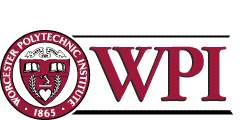

| Percent |
Activity |
| 60
% |
Six quizzes. 10 %
penalty for make-ups. |
| 20 % |
Mastering
Physics homework, course ID:
PH111XSTUDIOPHYSICSC17, due before the next studio session at 8:30 AM.
Two lowest scores dropped; late work will not accepted for points. |
| 12 % |
Mastering Physics prepwork, same
course ID as above, due the night before a studio session at 11:58 PM. These are easy
points, and they were given a generous portion of the final grade to
encourage you to be ready for our sessions. Late work will not
accepted for points. |
| 6 % |
Worksheets, as follow-ups to the
in-class lab-oriented activities. Submission in the evenings
through Canvas at 11:58 PM a
day or two after a session. Lowest two scores dropped.
Make-ups are not possible. |
| 2 % |
Clicker score. During a
session, with your clicker that will be loaned to you,
you earn one point for answering a question and two points for
answering correctly. Failure to return your clicker at the end of the
term results in a $75
charge to your account. Make-ups are not possible. |
| Week of | Sunday |
Monday | Tuesday | Wednesday | Thursday | Friday |
| 8.January.2016 |
What's
due Today's topic Sections in book |
|
-- |
PW1 Intro 1.1-1.6 |
||
| 15.January | WS1 |
HW1 MLK Day |
PW2 Kinematics I 2.1-2.6 |
WS2 Vectors 1.7-1.9 |
HW2 |
PW3 Kinematics II 3.1-3.5 |
| 22.January |
WS3 |
HW3 |
PW4 Dynamics I 4.1-4.6 |
WS4 Quiz 1 |
HW4 |
PW5 Dynamics II 5.1-5.5 |
| 29.January |
WS5 |
HW5 |
PW6 Energy I 6.1-6.4 |
WS6 Quiz 2 |
HW6 |
PW7 Energy II 7.1-7.5 |
| 5.February |
WS7 |
PW8 |
HW7 Momentum I 8.1-8.2 |
WS8 Quiz 3 |
PW9 |
HW8 Momentum II 8.3-8.4 |
| 12.February | WS9 |
PW10 |
HW9 Torque 10.1, 11.1-11.3 |
WS10 Quiz 4 |
PW11 Advising Day |
HW10 Rotational kinematics 9.1-9.4 |
| 19.February |
WS11 |
PW12 |
HW11 Rotational dynamics 10.2-10.4 |
WS12 Quiz 5 |
PW13 |
HW12 Angular momentum 10.5-10.6 |
| 26.February |
WS13 |
PW14 |
HW13 Review |
-- Quiz 6 |
-- |
-- "Monday" |
![[top]](PH111X.C17_files/top.gif) |
Top of this page |
![[physics]](PH111X.C17_files/gyro.gif) |
WPI Department of Physics Home page |
![[WPI]](PH111X.C17_files/seal.gif) |
WPI Home page |